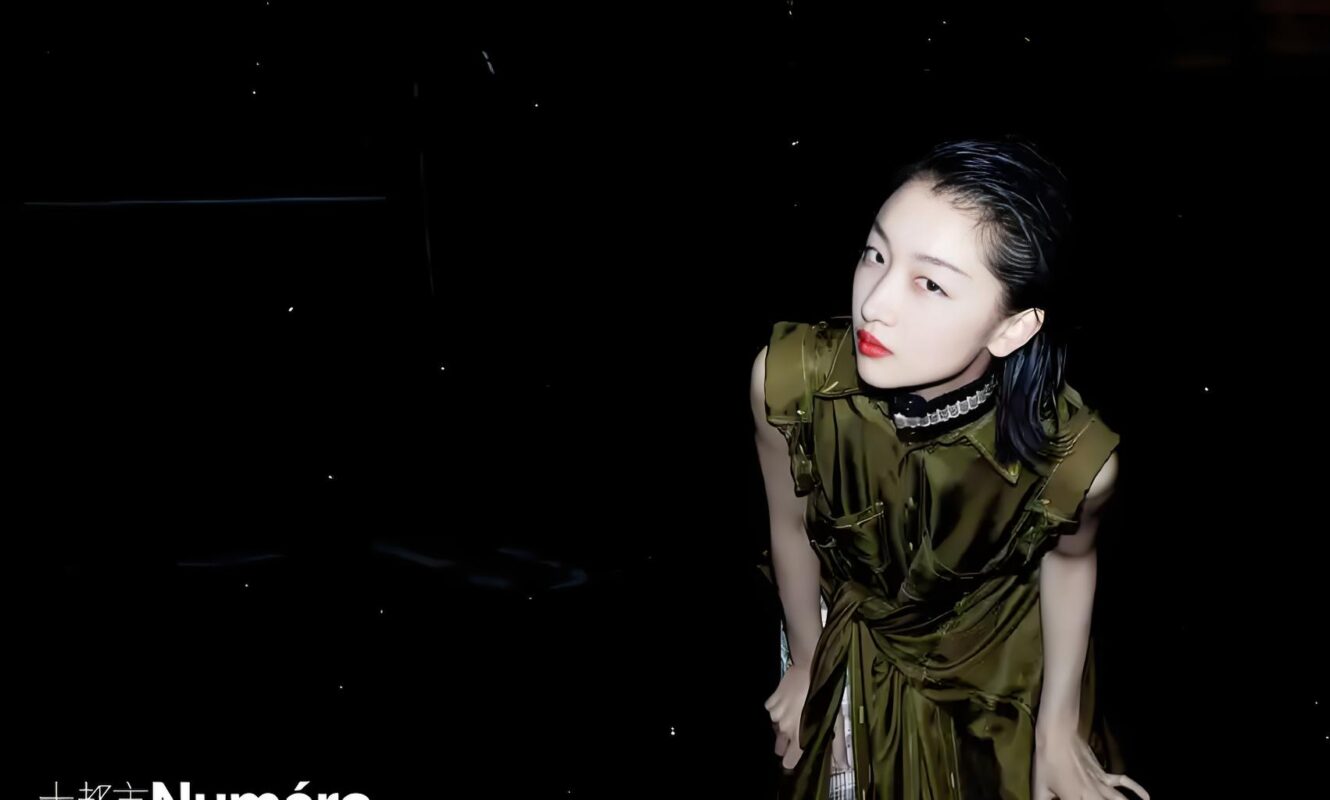I. Genesis: The Serendipitous Ascent of a “Muse”
Zhou Dongyu’s entry into cinema epitomizes a modern-day Cinderella narrative, one orchestrated not by ambition but by fortuitous alignment of raw talent and directorial vision. Born in 1992 to working-class parents in Shijiazhuang, Hebei Province—a city devoid of artistic infrastructure—her trajectory seemed destined for obscurity until Zhang Yimou’s nationwide casting call for Hills of Hawthorn (2010) intercepted her high school dance rehearsal. As the meek yet spiritually resilient “Jing Qiu,” Zhou’s performance transcended mere neophyte appeal: her wide-set eyes conveyed a tremulous innocence, while her restrained physicality—hunched shoulders, hesitant gestures—embodied Mao-era repression with anthropological precision (from fenghuang). The film’s 150 million USD box office and triple Golden Rooster Award wins catapulted Zhou into stardom, yet paradoxically confined her to the “muse” archetype, a label she would spend years dismantling through strategic defiance of industry expectations.
II. Metamorphosis: Shattering the Ingenue Mold
Zhou’s post-Hawthorn career became a masterclass in deliberate reinvention, rejecting lucrative offers for typecast roles in favor of psychologically hazardous territory:
- The Gothic Turn in Soul Mate (2016): Portraying the anarchic “Ansheng,” Zhou weaponized her petite frame against cinematic conventions, using frenetic dance sequences and jagged vocal delivery to externalize repressed trauma, a performance that earned her the Hong Kong Film Award for Best Actress and redefined her as an agent of chaos.
- Comedic Subversion in This Is Not What I Expected (2017): As the neurotic chef “Gu Shengnan,” she deployed slapstick physicality—tumbling over kitchen counters, exaggerated grimaces—to deconstruct rom-com tropes, proving her aptitude for genre alchemy.
- Existential Dread in Better Days (2019): Her portrayal of bullied student “Chen Nian” synthesized visceral realism (unwashed hair, bloodied uniforms) with metaphysical stillness, particularly in the film’s climactic prison scene where a single tear tracking through grime communicated volumes about societal complicity, securing her Asia Pacific Screen Award and silencing critiques of her dramatic range.
III. Craft Dissected: The Methodologies of Emotional Authenticity
Zhou’s acting philosophy rejects technical flamboyance in favor of somatic truthfulness, a methodology refined through collaborations with auteurs:
- Embodied Vulnerability: For Derek Tsang’s Better Days, she immersed herself in Chengdu’s impoverished alleys, observing teenage suicide survivors’ gait patterns and vocal tics, later incorporating their defensive postures into Chen Nian’s physical lexicon.
- Chronometric Precision: In Ann Hui’s Septet: The Story of Hong Kong (2020), her cameo as a 1960s flower seller required mastering Cantonese opera finger gestures at 0.75-second intervals, a precision achieved through motion-capture rehearsals at Beijing Film Academy’s virtual reality lab.
- Dialogic Minimalism: Films like The Shadow Play (2018) showcase her signature “silent soliloquies”—scenes where micro-expressions replace dialogue, such as flickering eyelid movements telegraphing betrayal during a mahjong game sequence.
Her artistic integrity manifests in refusal of commercial compromise: she famously walked away from a 20 million RMB cosmetics endorsement to play a deaf-mute janitor in the indie film Lighting the Night (2023), a decision reflecting her belief that “physical imperfection reveals spiritual geometry”.
IV. Off-Screen Dichotomies: The Paradox of Celebrity
Zhou navigates fame through calculated contradictions that preserve artistic sanctity:
- Academic Devotion: Despite Hawthorn’s success, she prioritized Beijing Film Academy’s grueling curriculum, graduating top of her 2011 cohort despite publicly documented struggles with English proficiency (scoring 26/150 in college entrance exams), viewing formal training as ethical armor against industry exploitation.
- Digital Abstinence: Eschewing Weibo’s influencer economy, she communicates exclusively via sporadic Sina Blog essays dissecting Krzysztof Kieślowski’s color symbolism or Haruki Murakami’s surrealism, once igniting academic discourse by comparing Norwegian Wood’s Naoko to Better Days’ Chen Nian.
- Advocacy Through Osmosis: As UNICEF China’s ambassador since 2021, she avoids charity galas, instead conducting clandestine workshops at Shanxi’s juvenile detention centers, teaching film analysis as emotional literacy therapy—a practice documented in Southern People Weekly’s 2023 investigative report.
V. Cultural Cartography: Redefining Chinese Femininity Onscreen
Zhou’s filmography constitutes a counter-narrative to patriarchal storytelling conventions:
- Body Politics: Her 148cm stature and “feline features” (as described by cinematographer Christopher Doyle) subvert traditional leading lady aesthetics, enabling roles like Nian Nian (2022)’s rural midwife, where her physical smallness magnifies the character’s moral enormity.
- Erotic Reclamation: In Only You (2024), she transformed the erotic thriller’s male gaze by choreographing her own love scenes, using chiaroscuro lighting and angular positioning to assert agency—a move praised by feminist film scholar Dai Jinhua as “decolonizing desire”.
- Regional Identity: Unlike peers masking provincial accents, she weaponizes her Hebei dialect in Return to Dust (2022), where her character’s thick vowels (“zh” pronounced as “z”) become auditory symbols of working-class authenticity.
Her influence permeates industry structures: the “Dongyu Clause” now appears in youth drama contracts, mandating directors audition non-professional actors after her discovery story.
VI. Trajectory: Transnational Experiments and Directorial Forays
At 33, Zhou leverages her cultural capital for radical creative gambits:
- Sci-Fi Embodiment: In The Wandering Earth III (2025), she plays a quantum-AI hybrid, training with CERN physicists to simulate particle-decay movements, while her neural data was scanned for CGI emotion-mapping—an unprecedented actor-technological symbiosis.
- Global Collaborations: Following her Cannes 2024 masterclass on “Bressonian Minimalism in East Asian Cinema,” she commenced filming Hirokazu Kore-eda’s Sea of Translation (2026), learning Japanese sign language to portray a Tsunami survivor—a role requiring daily underwater acting sessions with marine biologists.
- Behind-the-Camera Evolution: Her production company, Wintergrass Films, secured rights to Yu Hua’s novel China in Ten Words, with Zhou set to direct the adaptation using multi-perspective narration, a structural experiment previewed in her award-winning short Moth to Flame (2024).
Her trajectory defies China’s star-making machinery, evolving from accidental ingenue to architect of cinematic language—one where vulnerability becomes revolutionary praxis.

